Mingsheng Hong
TensorFlow Eager: A Multi-Stage, Python-Embedded DSL for Machine Learning
Feb 27, 2019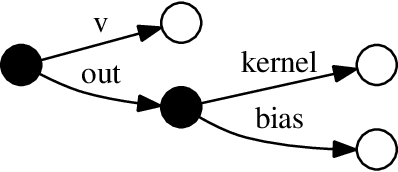

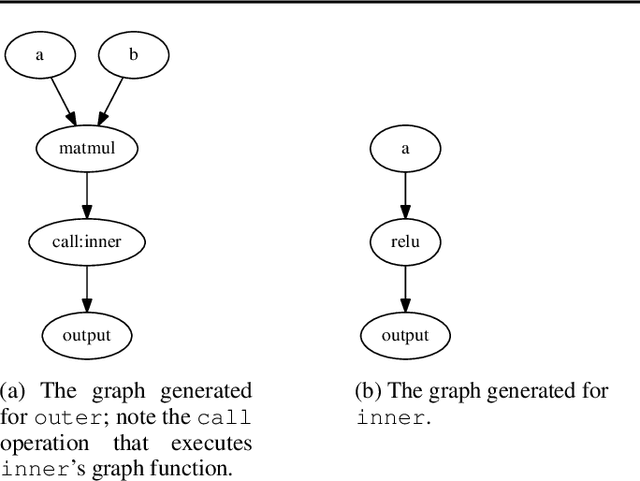
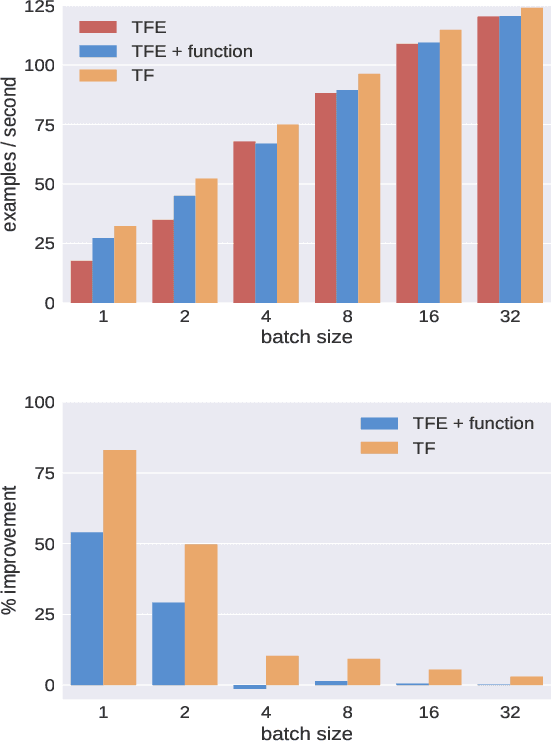
Abstract:TensorFlow Eager is a multi-stage, Python-embedded domain-specific language for hardware-accelerated machine learning, suitable for both interactive research and production. TensorFlow, which TensorFlow Eager extends, requires users to represent computations as dataflow graphs; this permits compiler optimizations and simplifies deployment but hinders rapid prototyping and run-time dynamism. TensorFlow Eager eliminates these usability costs without sacrificing the benefits furnished by graphs: It provides an imperative front-end to TensorFlow that executes operations immediately and a JIT tracer that translates Python functions composed of TensorFlow operations into executable dataflow graphs. TensorFlow Eager thus offers a multi-stage programming model that makes it easy to interpolate between imperative and staged execution in a single package.
Mesh-TensorFlow: Deep Learning for Supercomputers
Nov 05, 2018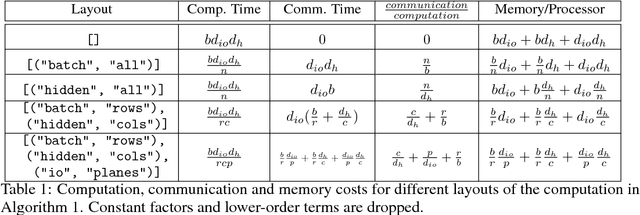
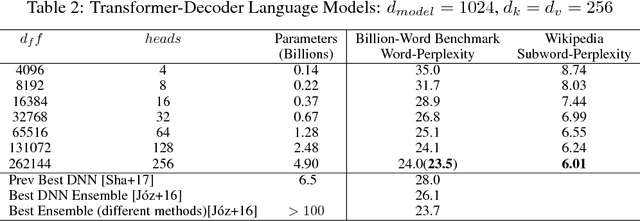

Abstract:Batch-splitting (data-parallelism) is the dominant distributed Deep Neural Network (DNN) training strategy, due to its universal applicability and its amenability to Single-Program-Multiple-Data (SPMD) programming. However, batch-splitting suffers from problems including the inability to train very large models (due to memory constraints), high latency, and inefficiency at small batch sizes. All of these can be solved by more general distribution strategies (model-parallelism). Unfortunately, efficient model-parallel algorithms tend to be complicated to discover, describe, and to implement, particularly on large clusters. We introduce Mesh-TensorFlow, a language for specifying a general class of distributed tensor computations. Where data-parallelism can be viewed as splitting tensors and operations along the "batch" dimension, in Mesh-TensorFlow, the user can specify any tensor-dimensions to be split across any dimensions of a multi-dimensional mesh of processors. A Mesh-TensorFlow graph compiles into a SPMD program consisting of parallel operations coupled with collective communication primitives such as Allreduce. We use Mesh-TensorFlow to implement an efficient data-parallel, model-parallel version of the Transformer sequence-to-sequence model. Using TPU meshes of up to 512 cores, we train Transformer models with up to 5 billion parameters, surpassing state of the art results on WMT'14 English-to-French translation task and the one-billion-word language modeling benchmark. Mesh-Tensorflow is available at https://github.com/tensorflow/mesh .
 Add to Chrome
Add to Chrome Add to Firefox
Add to Firefox Add to Edge
Add to Edge